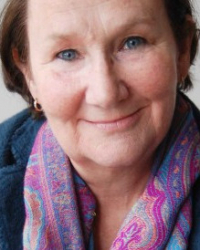Men and counselling
In the UK men are at more risk of suicide than women; the statistics speak for themselves – three times as many men die at their own hand each year than women do. Suicide is the single most common form of death amongst men under 45. Because of men’s tendency to be more physical, the ways they choose to end their lives are more dramatic and dangerous which makes them more likely to succeed in their attempts. Men, quite clearly, do not seek help in the way that women do when they are in trouble. This explains why they are three times as many more women seeking help in consulting rooms up and down the country.
Men are still considered by society generally to be largely responsible for being the breadwinner, protecting their family, having a public place in the world, being ambitious, aggressive and focussed. Men get a sense of self-esteem from their work; that longed for promotion, the success of a project. They are more visible hence why more is expected of them. Being in charge, having power involves responsibility and a fall from grace (not getting that promotion for example) is more dramatic and has far-reaching consequences. It affects their families, their self-respect and the respect of others. Mothers are given respect in society. They are allowed to be at home, working behind the scenes. Men may not feel they have a central role in the domestic sphere which can further enforce a more isolated role for them.
Success outside the home, then, does not necessarily give men a support network if things start to unravel. In addition to this they find it difficult, if not impossible, to voice their failure. They have little vocabulary to engage in a dialogue about how they feel. Added to this we tend not to take men as seriously if they tell us they are feeling awful. Their natural reticence and shame means that they back off into platitudes very quickly. I’ll pull myself together; I’ll man up, it’ll pass once I get my head round it. It is more difficult to see a man cry because it is more seldom we see it.
This is even worse the further down the socioeconomic scale we go. Unemployed men who have suffered the break up of a family structure are far more likely to suffer from isolation. More so than a woman whose role, even now, is more often to be granted custody of their children after a separation or divorce. They are left isolated from their families with little financial backup and poor accommodation outside the family home. Unemployed men are far less likely to have financial back up from families or emotional back up from friends who are dealing with their own financial struggles. Men see their fears as weakness or self pity which they despise as it means that they aren’t ‘real men’. They see counselling as a luxury and do not prize their mental health.
Tom Hanks recently on Desert Island Discs told Kirsty Young that he discovered at the age of 13 that his vocabulary was one of ‘loneliness’. He spoke about the depression and pain he suffered as a child and a young man, something most men find really difficult. This represented a break from the norm. It was a refreshingly open admission, giving lie to the myth that ‘real’ men don’t suffer or experience pain. However, Tom Hanks has the freedom to talk about his loneliness and sadness as a world famous man.
Women come to counselling because they suffer from depression, anxiety and loneliness. They may have had awful childhoods and relationships of abuse and violence. They worry about their children, their parents, their friends. Men come with all this too but they come with another agenda: their masculinity, how it has been challenged, how it is to be managed. Women are more used to dealing with feelings of humiliation and embarrassment, their bodies offer them a challenge, childbirth and menstruation is messy. Even so this offers them creativity, they can if they so wish produce another human being and increasingly without a man present.
Testosterone is an entirely different matter. The sexual act for a man is a more active one. It is a ‘performance’ and it offers them an opportunity to brag to other men about their conquests. However, behind the bragging lies anxiety about performance, their ability to please a woman. What is a ‘real’ man? Males have been in crisis for decades, women can now do most things a man can do. It is little wonder that men more often feel isolated, a failure, worthless but also given their supposed role in charge of the whole societal structure, unable to voice their failure. They are thus in a double bind and take it out viciously upon themselves. They become suffused with the death wish to end their suffering and harsh punishment takes over. Talking has surely got to offer some hope. A more compassionate voice offers scope for improvement. Mental health is not an indulgence it is a precious, necessary commodity, which we ignore at our peril.

Find the right counsellor or therapist for you
All therapists are verified professionals
